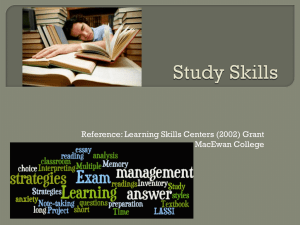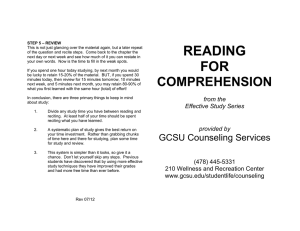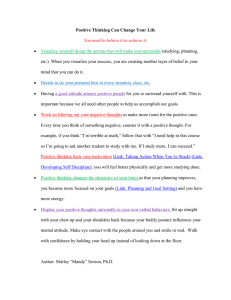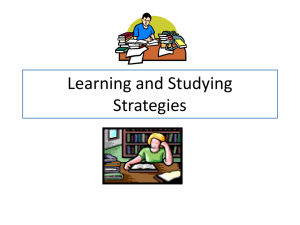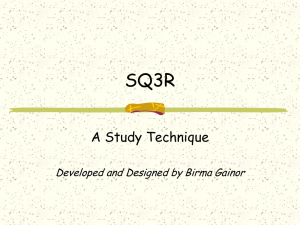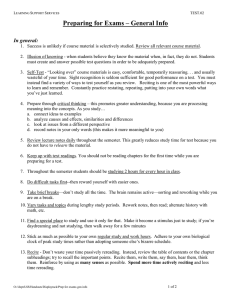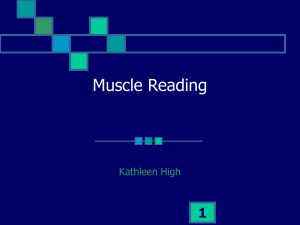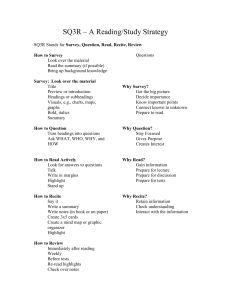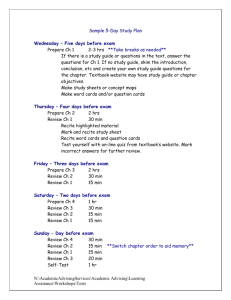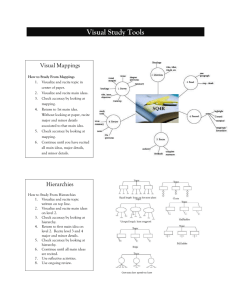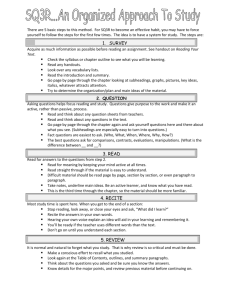Memory Principles - St. Cloud State University
advertisement
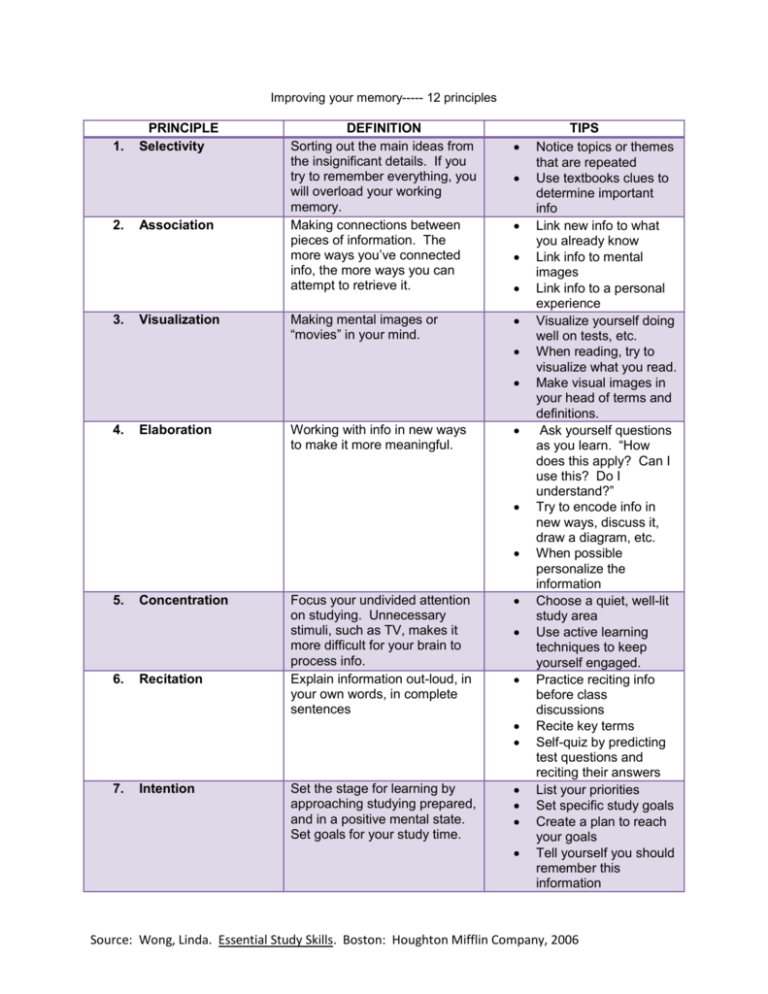
Improving your memory----- 12 principles 1. 2. 3. PRINCIPLE Selectivity Association Visualization DEFINITION Sorting out the main ideas from the insignificant details. If you try to remember everything, you will overload your working memory. Making connections between pieces of information. The more ways you’ve connected info, the more ways you can attempt to retrieve it. Making mental images or “movies” in your mind. • • • • • • • • 4. Elaboration Working with info in new ways to make it more meaningful. • • • 5. 6. Concentration Recitation Focus your undivided attention on studying. Unnecessary stimuli, such as TV, makes it more difficult for your brain to process info. Explain information out-loud, in your own words, in complete sentences • • • • • 7. Intention Set the stage for learning by approaching studying prepared, and in a positive mental state. Set goals for your study time. • • • • TIPS Notice topics or themes that are repeated Use textbooks clues to determine important info Link new info to what you already know Link info to mental images Link info to a personal experience Visualize yourself doing well on tests, etc. When reading, try to visualize what you read. Make visual images in your head of terms and definitions. Ask yourself questions as you learn. “How does this apply? Can I use this? Do I understand?” Try to encode info in new ways, discuss it, draw a diagram, etc. When possible personalize the information Choose a quiet, well-lit study area Use active learning techniques to keep yourself engaged. Practice reciting info before class discussions Recite key terms Self-quiz by predicting test questions and reciting their answers List your priorities Set specific study goals Create a plan to reach your goals Tell yourself you should remember this information Source: Wong, Linda. Essential Study Skills. Boston: Houghton Mifflin Company, 2006 8. Big and Little Picture Understanding main ideas and supporting details. • • 9. Feedback Testing your knowledge of the material. • • • • • 10. Organization Well-organized info is easier to remember • • • 11. Time on Task Spend suffiencent time learning the material. Review material consistently • • • 12. Ongoing Review Practicing previously learned information • In your notes, use main ideas as headings, and list supporting details below them Use visual mapping to show main ideas and supporting details Recite info without using your notes Use flash cards Cornell Note-taking After reading a chapter, try to write a summary without looking back. After reading a paragraph, try to recite the important info without looking Caterize info into lists Make tables or charts Use time-lines or other visual organizers Use spaced practice. Review your old notes before class, or before reading the next chapter. For each hour spent in class, plan on spending two hours studying outside of class. Use 50 minute study blocks. Focus on one subject at a time. Continuously review the information you have learned to create stronger connections in your memory Source: Wong, Linda. Essential Study Skills. Boston: Houghton Mifflin Company, 2006
